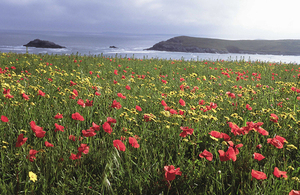Natural England Board determines outcome of General Licences consultation
Over recent months Natural England has held a wide-ranging consultation to seek views on potential adjustments to General Licences for protected species.

These licences are periodically reviewed and this year’s consultation has sought views on 65 separate questions: 46 relating to specific proposals that Natural England were making and 19 where Natural England was seeking information rather than proposing a licence change.
Consulting on the detail of General Licences is an important way of ensuring that protected species legislation works effectively and responds to changing wildlife management requirements.
The proposals we have put forward have asked legitimate questions about what the Licences should cover, and this extensive consultation has been vital in helping develop our understanding of how these proposals might work practically.
The consultation finished on 19 May and attracted over 2,000 responses. These have now been fully evaluated, and at its meeting held on 16 July 2014, Natural England’s Board considered how each of the questions in and proposals the consultation should be taken forward.
25 proposals have been well supported and the Board were confident that these were the right changes to make in the interests of the effective and safe management of wildlife. For the other questions and proposals – including those at 2b and 31*, which have attracted widespread public interest – the case for change has not been sufficiently made. It is important that amendments to General Licences provide confidence, certainty and clarity, and the consultation has established that in some areas there is not a broad consensus that the suggested changes will provide that. In light of the detailed feedback received, the Board has therefore determined that these questions and proposals should not be adopted.
Andrew Sells, Natural England’s Chairman, commented: “I welcome the Board’s clear decision on which proposals to take forward and which to drop. We have listened to the replies to the consultation and we believe sound judgement and common sense have prevailed.
“We can now move ahead with amending the General Licences with confidence that the changes being made will be well supported by licence users and will deliver improvements to the effective and safe management of wildlife within a proportionate regulatory framework.
“I am extremely grateful to the 2,000 individuals and organisations who have contributed to this year’s consultation exercise, whether on the specific proposals or the more general questions. Their views have been invaluable, and their inputs will help us to continue to ensure that the General Licence framework remains sensible, proportionate, and fit for purpose.”
See a in regard to each of the proposals and questions in the consultation.
Notes to editors
About General Licences and the 2014 consultation
Licences allow people to carry out activities affecting protected species that would otherwise be unlawful, but which are justified in certain circumstances. We use General and Class Licences in situations that pose a low level of risk of harming the conservation of the protected species and where it is justifiable to issue a licence without seeking detailed evidence on a case by case basis.
More details about the 2014 consultation and the 35 areas it has covered can be found on our consultation page.
A summary of consultation responses will be published on Natural England’s website in due course.
*Question 2b) Views were invited on whether robin, pied wagtail and starling should be added to the General Licence to enable people to act quickly where the birds are causing genuine health and safety problems (eg in the past they have nested in hospital ventilation ducts posing infection risks). The Board determined that question 2b) should not be pursued further.
*Proposal 31. Natural England also consulted on a proposal to amend the wording in the General Licence reflecting the legal requirement that shooting under General Licence can only take place when there is “no other satisfactory solution”. The Board has determined not to include the revised wording in the General Licence.